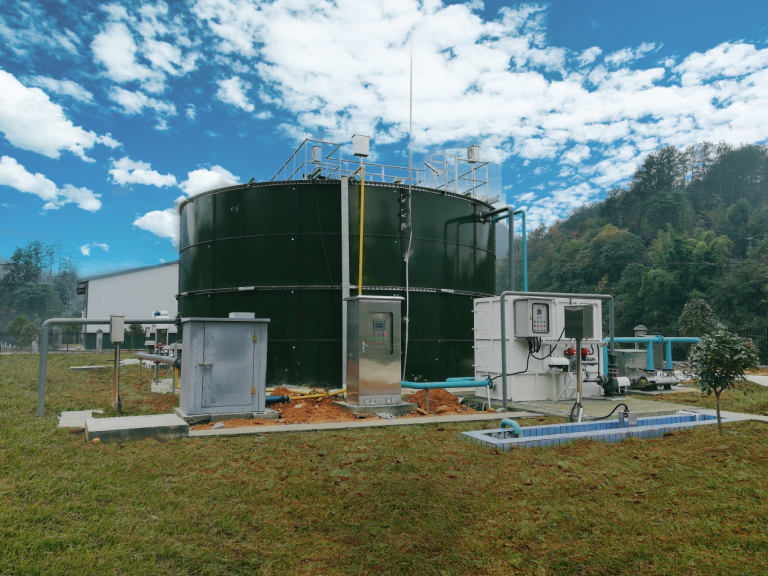Decentralised Wastewater Management in the Caribbean: A Detailed Review

Beneath the pristine facade of Caribbean paradise lies a pressing issue – wastewater management. Island nations grapple with untreated sewage, highlighting the need for innovative solutions. Enter decentralised wastewater management systems, a powerful force addressing environmental and health concerns in the Caribbean region.
The State of Wastewater Management in the Caribbean: A Deep Dive into Data
The Caribbean Water and Wastewater Association reports a staggering 85% of untreated wastewater ends up in seas, rivers, and bays, posing a significant threat to human health and the environment. With groundwater serving as a major water source in nations like Barbados (90%), Jamaica (84%), St. Kitts (70%), and Trinidad (24%), the lack of proper infrastructure increases the risk of contamination.
Tourism Impact: A Challenge for Wastewater Management
The Caribbean’s thriving tourism, attracting over 30 million visitors annually, compounds wastewater management challenges. Remote resorts, reliant on septic systems, face environmental issues due to overwhelmed infrastructure. Traditional septic solutions without retrofitting are no longer sufficient, necessitating innovative modular decentralised technologies.
Decentralized Solutions: A Key Player in Tackling Water Scarcity
Decentralised wastewater treatment systems emerge as a critical player in addressing water scarcity. These systems not only treat wastewater but also create opportunities for reuse. In regions lacking centralized services, decentralised systems prove invaluable, efficiently treating local waste without extensive infrastructure.
Case Study: Sandals Emerald Bay Resort’s Success with Decentralisation
Sandals Emerald Bay Resort in the Bahamas exemplifies effective decentralised wastewater treatment. Combining desalination and wastewater reuse, the resort met water needs, complied with regulations, and enhanced water quality. Their sustainable approach emphasizes low costs and minimal environmental impact.
Decentralised Wastewater Management in the Caribbean: A Diverse Arsenal
The need for sustainable water management in the Caribbean is undeniable. It’s time to look at decentralised wastewater treatment solutions that can make a significant difference.
Biostik Biological Treatment for Septic and Wastewater Lagoons
GWT Biostik biological treatment is one such solution, offering efficient ways to treat wastewater locally and minimize environmental impact. This method uses bacteria within a fixed film process to break down waste material without requiring large infrastructure or extensive maintenance costs.
Mbio MBBR Biological Treatment
A different approach comes from Mbio MBBR biological treatment. Here, microorganisms attached on small plastic carriers degrade pollutants, providing robust performance even under variable loads – perfect for areas with fluctuating tourist populations like many parts of the Caribbean.
Zeoturb Liquid Bio-Organic Flocculant
If we’re talking about treating high volumes of water effectively and safely, let’s not forget Zeoturb liquid bio-organic flocculant. Not only does it improve clarity by removing suspended solids but also helps reduce phosphorus levels – a boon considering nutrient pollution issues faced by these islands’ waters.
Electrocoagulation Treatment
Last but definitely not least, electrocoagulation brings some serious game into play. By using electricity instead of chemicals as part of its process, this innovative technique tackles tough contaminants while minimizing the risk of harmful by-products. An efficient, sustainable choice for decentralized wastewater treatment.
These technologies offer efficient, sustainable, and versatile options for decentralised wastewater treatment, crucial in addressing the Caribbean’s water scarcity and quality issues.
FAQs in Relation to Decentralised Wastewater Management in the Caribbean
What is a decentralised wastewater management system?
A decentralised system treats waste locally, not miles away at a central facility. It’s more flexible and can often be more sustainable.
What are the decentralised water purification systems?
Solutions like GWT Biostik biological treatment or electrocoagulation clean up water on-site in an eco-friendly way, skipping long transport routes.
What are decentralised treatment areas?
The places where local sewage gets treated onsite – think buildings, hotels and resorts. They are key to sustainable and efficient waste management.
Conclusion: A Call to Transform the Caribbean’s Water Future
As we unveil the depth of the Caribbean’s wastewater crisis, it’s clear that decentralised wastewater management solutions hold the key to a sustainable water future. The data-backed insights, impactful case studies, and innovative technologies showcased in this journey underscore the urgency of action.
Now, more than ever, it’s crucial for stakeholders, governments, and industries to unite in implementing decentralised wastewater solutions. The Caribbean’s pristine beauty, its ecosystems, and the health of its communities are at stake. Let’s turn this revelation into a catalyst for change.
Join the movement for sustainable water management in the Caribbean. Advocate for the adoption of decentralised technologies, support initiatives that promote water reuse, and demand responsible tourism practices. Every drop counts in our collective effort to ensure clean water for all.
Share this message, spark conversations, and drive awareness. Use #CaribbeanWastewaterSolutions to amplify the call for action. Together, let’s transform challenges into opportunities, ensuring a resilient and thriving Caribbean for generations to come. The time to act is now.
Want to learn more about how Genesis Water Technologies can assist your organization to optimize your water & wastewater treatment process? Contact the water experts at Genesis Water Technologies, Inc. at 1 321 280 2742 or reach out to us via email at customersupport@genesiswatertech.com to discuss your specific application. We look forward to collaborating with you.

